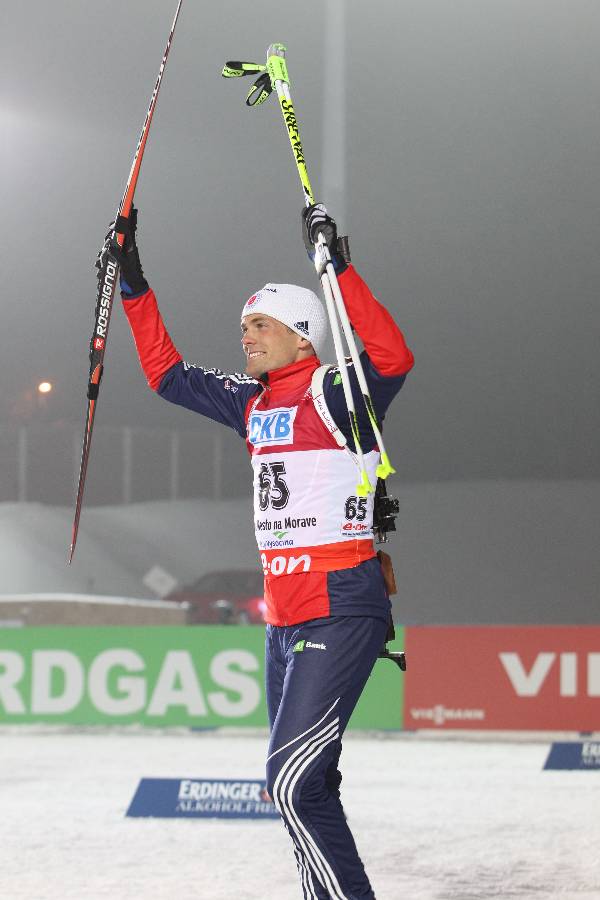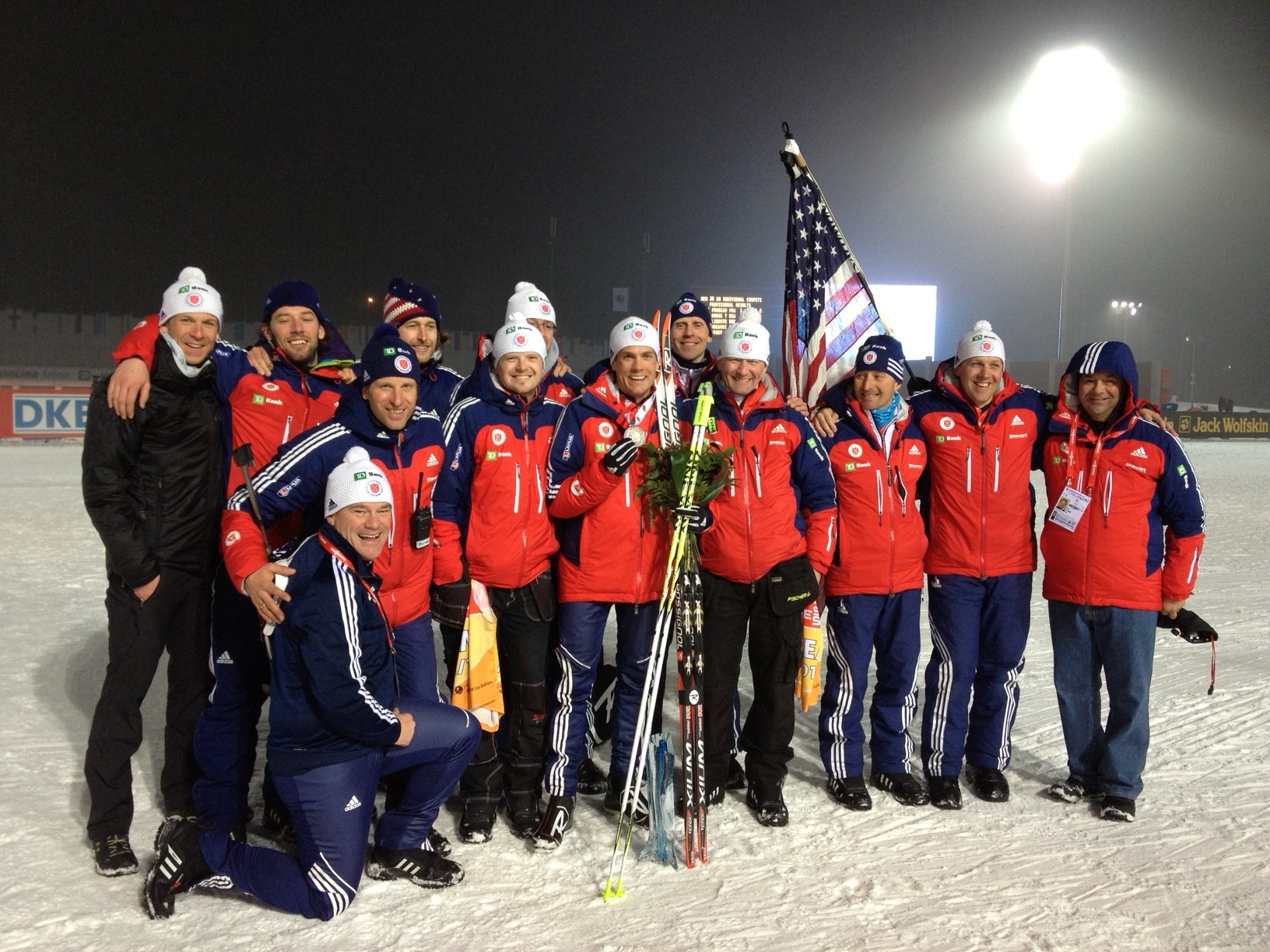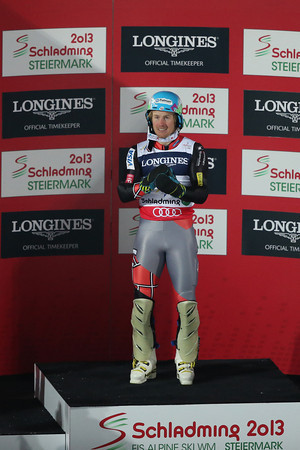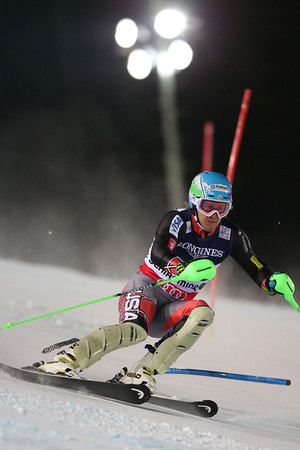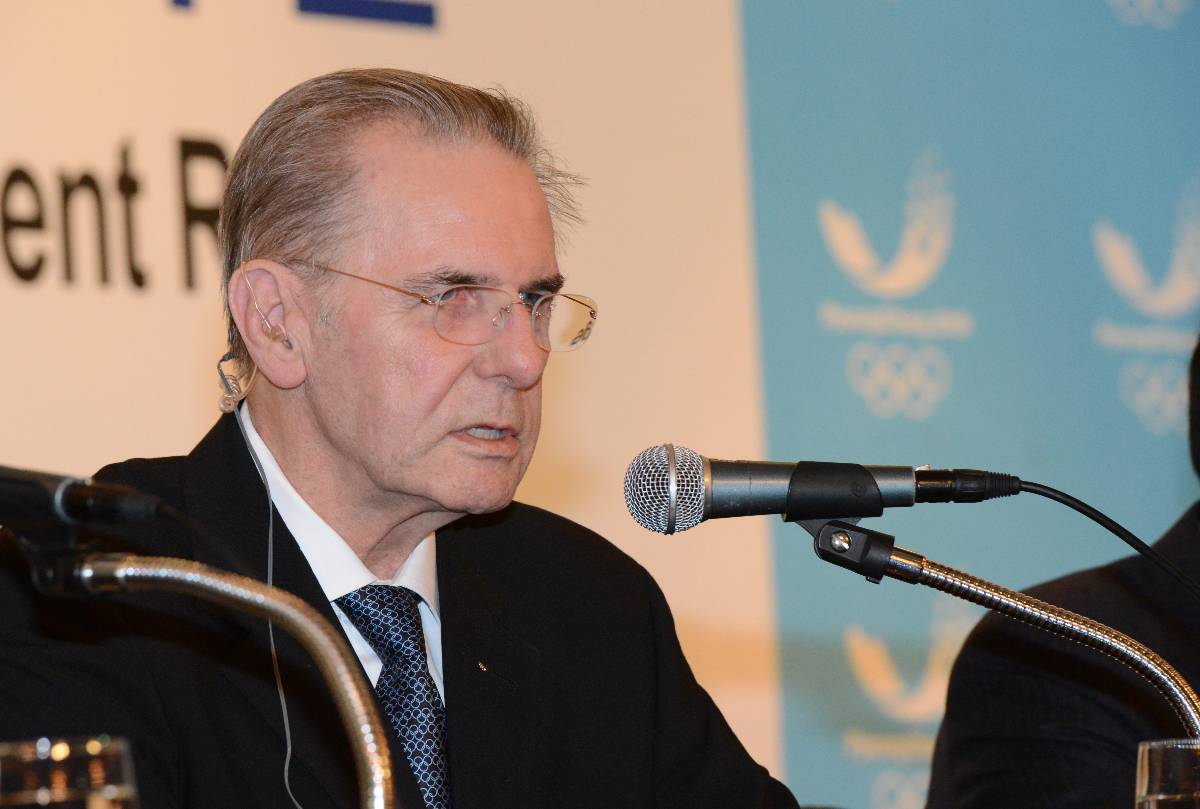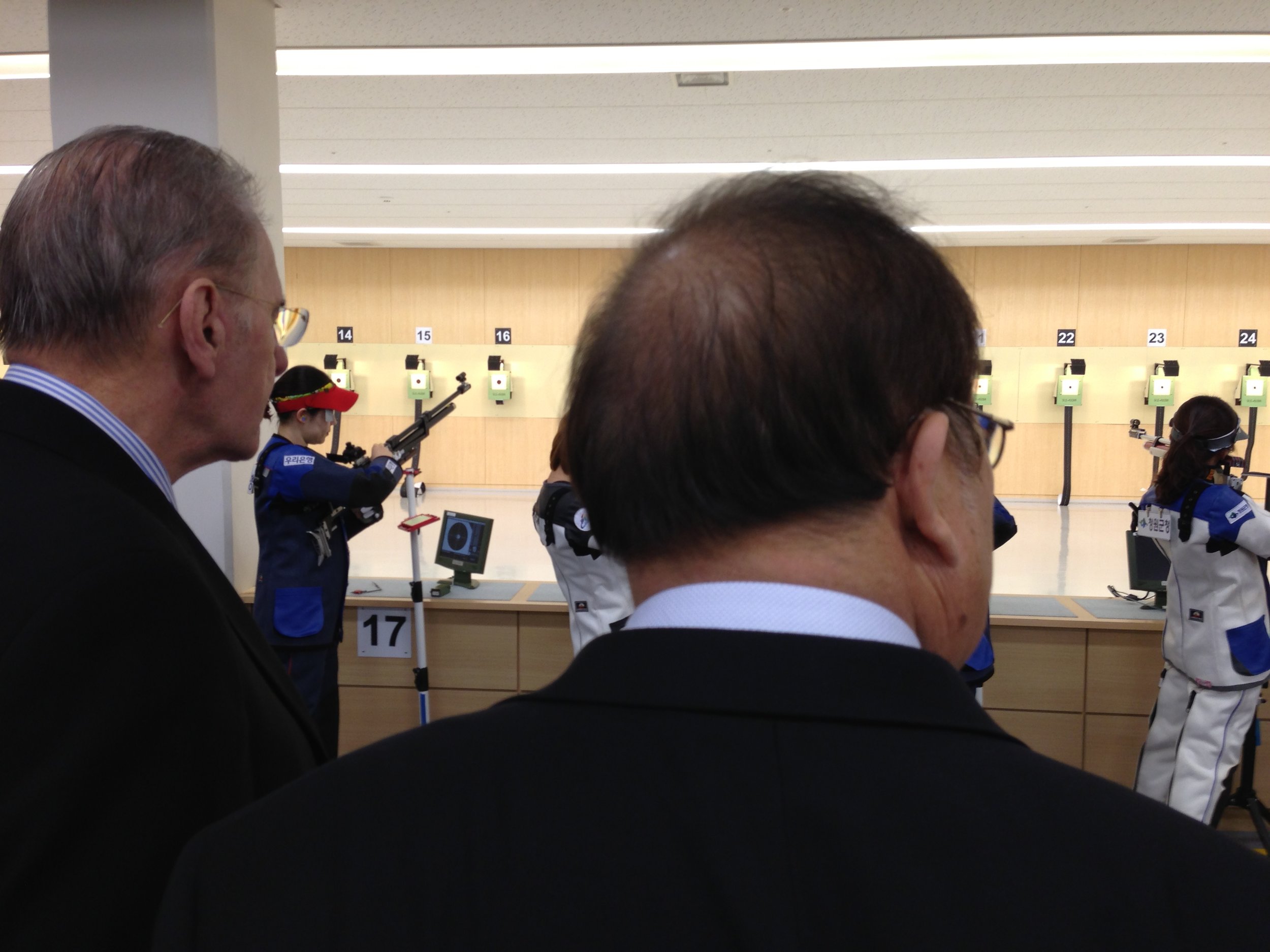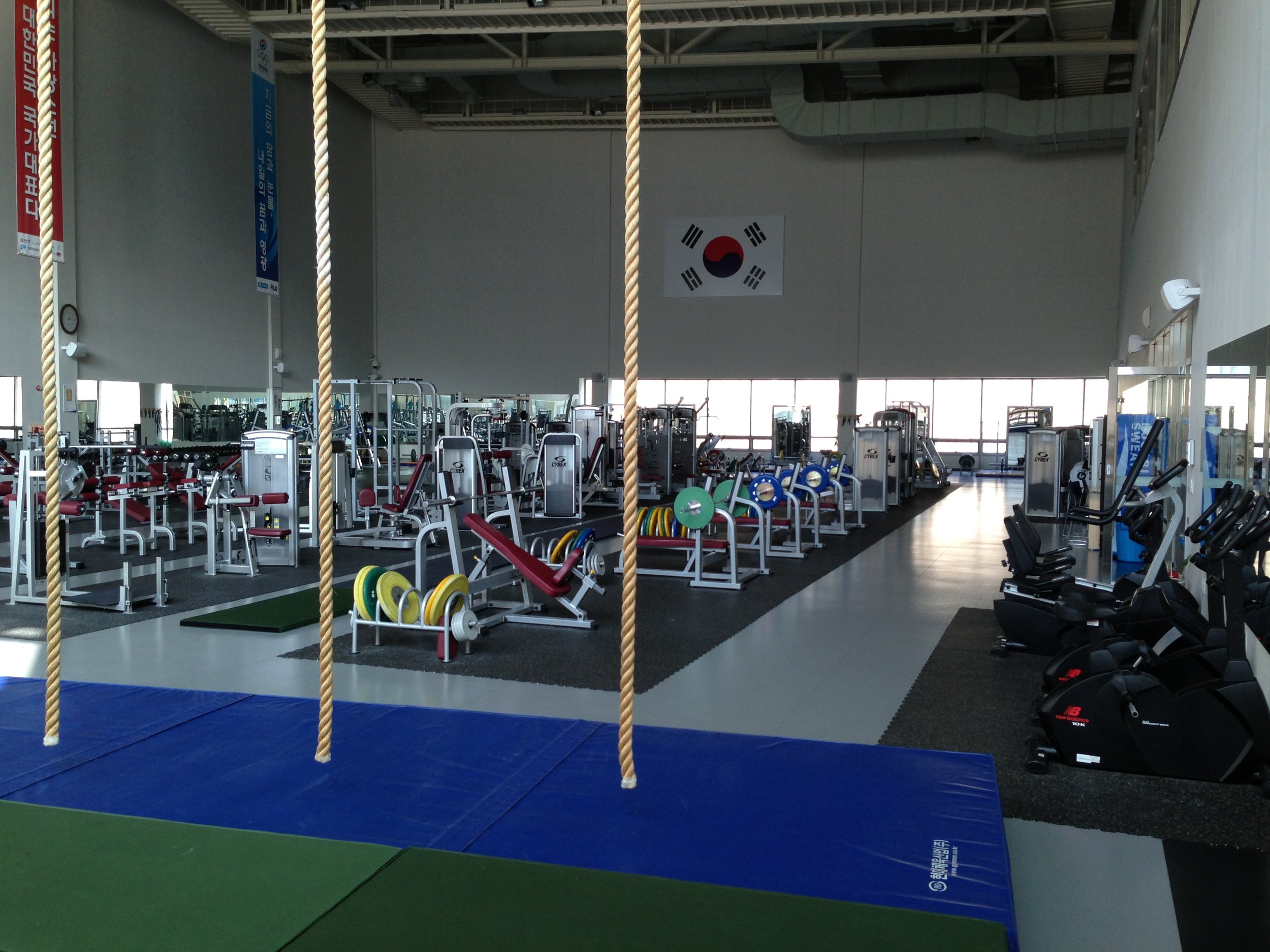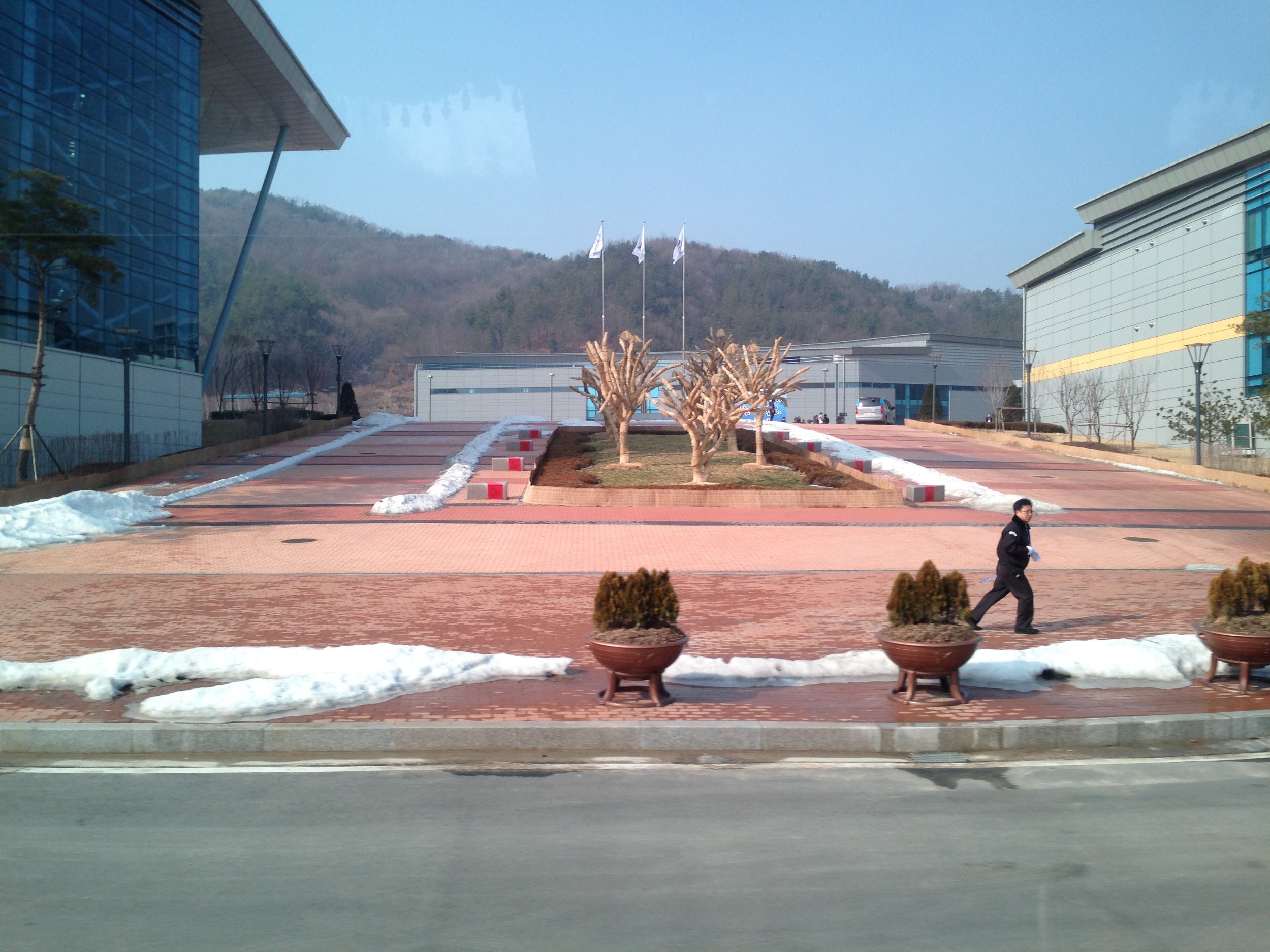There are moments in sports when all the hard work, the dreams, the belief without evidence -- it all pays off.
It finally happened Thursday for Tim Burke and the U.S. men's biathlon team at the world championships in Nove Mesto, in the Czech Republic.
Burke, 31, of Paul Smiths, N.Y., took silver in the 20-kilometer individual event, his first career world championship medal. The medal marked the first for the United States at a world championships since Josh Thompson's 20k individual silver in 1987.
Burke crossed in 50 minutes, 6.5 seconds, with one penalty. He finished 23.5 seconds behind the World Cup leader, Martin Fourcade of France, who won his first medal of the 2013 championships in 49:43 flat, with one penalty. Sweden's Fredrik Lindström took third, in 50:16.7.
The United States has never -- repeat, never -- won an Olympic medal in biathlon.
Thursday's race is of course no guarantee of anything at the Winter Games come next February.
But now Burke and the American team head to Sochi knowing with certainty that he -- and they -- are just as good as anyone else.
That is a huge emotional and mental barrier that just got crossed.
Enormous.
Two other Americans produced solid showings Thursday: Leif Nordgren finished 22nd, Lowell Bailey 29th.
Meanwhile, at last month's biathlon junior world championships in Obertilliach, Austria, Sean Doherty made U.S. biathlon history as well -- becoming the first to win three medals in a single championships, including gold in the 10k pursuit, emerging as a solid contender to make the 2014 U.S. Olympic team in the relay.
Suddenly, the Americans are no joke. They're for real.
"I don't look at it like building pressure," meaning toward Sochi, Burke said in a telephone interview. "I look at [the silver medal] as an awesome way of, 'I know I can do it.' It's not, 'Can I do it?' I know it's possible. I don't have to worry about that."
He also said, referring to the possibility of making the podium in Sochi, "I am not the only one who has been saying this. Max [Cobb, the president and chief executive of the U.S. Biathlon Federation], Bernd [Eisenbichler, the team's high performance director], everyone has been saying this to the U.S. Olympic Committee and to our sponsors: 'These guys can win medals.'
"Today proves what they have been saying is true."
It is also true that Burke's race -- and finish -- served as a reminder that sports still can, even on a day in which the headlines involving the South African sprinter Oscar Pistorius dominated so much, offer up a lesson in amity and goodwill.
Everyone in the tightly knit biathlon world knows the Americans have gone winless in the Olympics.
Everyone knows, too, that Burke wore the yellow jersey -- emblematic of the World Cup tour leader -- during the 2010 season but since then had to manage a comeback from a leg condition called "compartment syndrome" that's common to Nordic skiers.
A few weeks back, in December, at a World Cup in Slovenia, he took a third place in a 15k mass start -- his first podium finish since that 2010 season.
So he came to the worlds, which kicked off last Thursday, looking for big things. Then, though, his first two races didn't produce the results he was looking for -- tied for 28th in the 10k sprint, 32nd in the 12.5k pursuit.
This, though, is where the winning mental edge plays such a huge role in big-time sports.
Instead of sulking, or getting down, Burke stayed calm and focused on what was in front of him. He couldn't change what had already happened. He could only race the races still left to race.
"Today," he's said, "I felt like i was on a man on mission. I couldn't go through these championships -- after preparing all year -- and not show what I was capable of. Per [Nilsson], my coach, did a great job of shaking me up and telling me just to continue to believe in myself. He said, 'Don't you dare give up on these championships, things can change from day to day.' "
Burke drew a late start number -- 65 -- and so for most of the race he was able to shoot and ski without having any idea where he was in the standings. That also meant he didn't get caught up in his head in what was going on around him. It was just him, his skis and his gun.
It wasn't until his last time into the shooting range, when he heard the announcer say he was challenging for the gold medal, that he realized what was up. At that point, he said, "I tried not to think about it and stick to my routine." Laughing, he added, "I think I did a pretty good job. I was happy."
Out on the course, meanwhile, everyone else knew what was going on -- even if Burke didn't. Cobb, surrounded by well-wishers from other teams, could sense the excitement building as time kept ticking. As Burke skied near, and then across, the finish line, Cobb said, the scene was "just phenomenal."
Cobb said athletes, coaches and support staff from all over the world came over and high-fived the American contingent.
"It was one of those moments," Cobb said, "when you understand the role that sport can play, this notion that sport can bring the world together. That was in evidence today … in the finish line, and up on the course where I was, probably two dozen nations or more and they couldn't have been more excited for Tim and for us as this happened.
"It was," he said, "a really great moment."


